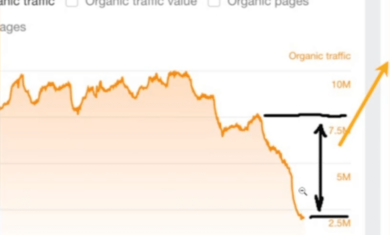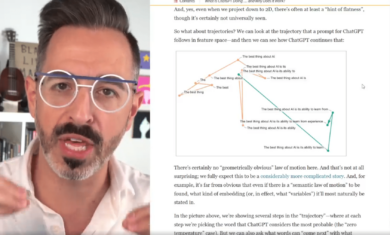About 3-1/2 years ago, Chris Anderson of Wired coined the phrase “the long tail
“. If you’re not familiar with it, the term is a way of expressing the advantage of going after thousands of unique search queries (or products) rather than focusing on just a few big ones.
Product-wise, Amazon is the king of this. They sell many copies of popular books, but they’re also able to sell millions of copies of obscure books simply because they’re not constrained by the square footage of a single store. Those individual sales of lesser-known books generate a massive number of sales each year.
The same idea works with search engines. While it’s great to rank well for some power terms, the real magic (and money) is when you rank well for thousands of less-popular searches. According to Google, 20-25% of the searches they see each day are queries that have never been searched before. That’s a staggering number! Millions of searches today will be brand new to Google. The wider you can rank in your niche, the more of those visitors you might pick up.
Here is an example using the website from our church. In the past month, we’ve had 7,084 visits from search engine visitors, and they’ve used a total of 1,958 different queries. It’s not a huge number of visitors, but it’s pretty good for a church site. Let’s dig into a few of those searches to see what they’re so helpful to us.
Here are a few of the queries that landed on us. I’m glad we rank well for these, but they’re not especially beneficial:
- mt bethel umc — 542 visits — Of course, this is our most popular. I’m glad we rank well for it, but those are people that are already looking for us.
- must ministry — 16 visits — It’s great that people found us when searching for this ministry, but they could be anywhere in the country and it probably wasn’t of much value for them to find us.
- churches — 3 visits — Of little value, since they’re probably not from the area.
How about the long tail? These are searches that occur far less often, but are very valuable:
- easter egg hunts in marietta ga — 3 visits — People looking for an egg hunt in our area and found our site. There is a decent chance that they decided to visit as a result of this search.
- methodist church marietta — 2 visits — Using Google Analytics, I can see that the two visitors looked at 14 pages on our site. At least one of them probably came to visit.
- adult softball leagues in cobb county georgia — 1 visit — We have exactly what this person was looking for.
- cobb county georgia church youth groups — 1 visit — This one visitor viewed 13 pages on our site. They were looking for a youth group in our area, found one, and wanted to learn more.
- daycare centers in east cobb county — 1 visit — They viewed 16 pages on the site. Again, we had exactly what they were looking for, and they’ve probably paid us a visit as a result.
The list goes on and on. In the past year we’ve had over 9,000 different queries that attracted two or fewer visits. These are big, long, ugly queries like the ones shown above — but they’re the ones that work. If someone enters a long, precise search query and your site is near the top, you have a good chance of getting the sale/lead/visit/whatever.
So how do you build long-tail traffic? It’s pretty easy. Just follow basic SEO principles to help Google really understand your content. Things like:
- Text-based navigation (not images).
- Text rendered as text, not buried in images or flash.
- Frequent internal links in the text of your site.
- Proper title and H1 tags.
- Well-formed URLs.
Build lots of quality content, then make sure Google can fully understand what your content is all about. Do that, and over time you’ll find yourself loving the long tail.





[…] « The beauty of the long tail […]